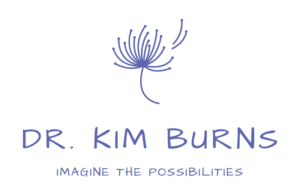Ta-da List: Tracking Small Achievements
In a podcast conversation with Kate Bowler, educator of educators, Parker Palmer shared that during a debilitating bout of depression, a therapist encouraged him to keep a list of the tiniest achievements. The therapist told him that documenting these micro wins each day would be evidence of his progress, even if it was as small as getting out of bed ten minutes earlier than the day before. Turns out, the therapist was right.
We all have some form of a to-do list. Some lists are super fancy, and some live an ethereal life in our heads. I have a daily and weekly list in my Notion dashboard and a longer list in Asana. Every Saturday, I write a weekend to-do list on a sticky note and leave it on the kitchen counter. These lists are constant reminders of 1) what I need to do, 2) that I haven’t done enough, and 3) there will always be more to do tomorrow.

My Journey with the Ta-Da List
I started keeping a list of accomplishments during the pandemic. It was a way of dealing with my anxiety and acknowledging that I was actually getting things done. As higher ed practitioners, there is little time to think during the workday. We can arrive on a Friday afternoon and think, “What the heck did I even accomplish this week?” My approach has evolved to a weekly review where I document what I have accomplished.
Work Benefits of a Ta-Da List
Anything that I had deemed worthy of putting on my to-do list is worthy of putting on my ta-da list. “Wrote that email I had been putting off?” It makes the list; “Prepped for a meeting?” It makes the list. The ta-da list reminds me of what I got done during a frenzied week, assuring me that I am making progress toward my goals, boosting my confidence, and motivating me to continue the work the following week.
Ta-Da List Complements a To-Do List
The ta-da list is a nice companion to the to-do list. I’ve seen articles that encourage replacing the to-do list with a ta-da list. I’m too task- and list-oriented to do that. Creating the to-do list, reviewing it at the end of the week, and seeing that I actually got some of the items done is thrilling. This makes sense if you know that I will take the time to write something on my to-do list that I forgot, just so I can have the satisfaction of checking it off. 😊

The Zeigarnik Effect
It turns out there is science behind this. We tend to remember unfinished tasks twice as well as completed ones. Unfinished tasks are like “cognitive itches” that give us that nagging feeling of unfinished business. This is called ‘the Zeigarnik Effect’, in honor of Bluma Zeigarnik, the psychologist who researched the topic in the 1920s.
I encourage you to try it. Grab a piece of paper or open up a document and keep a running list of what you’ve accomplished. I guarantee it will give you a boost of confidence and motivation.

Reference:
Zeigarnik, B. (1938). On finished and unfinished tasks. A source book of Gestalt psychology. Ellis, W. D. (Ed). Kegan Paul, Trench, Trubner & Company.
